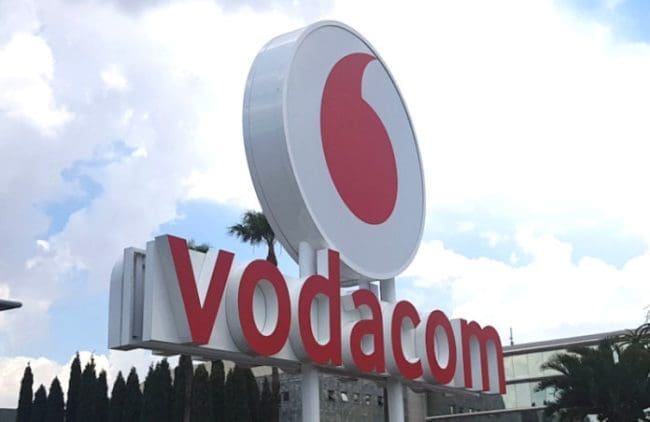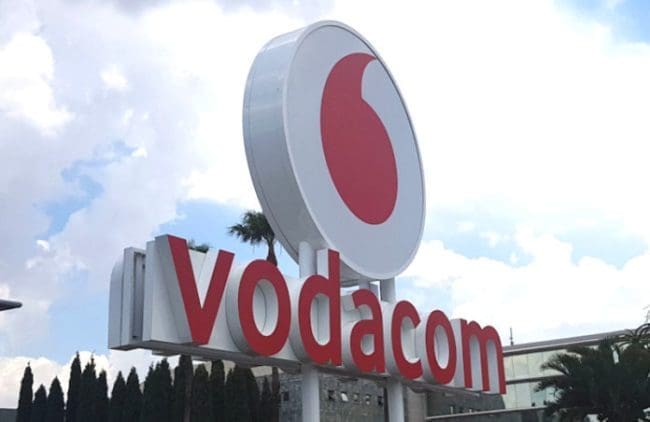
Vodacom has reached an out of court settlement with former employee Nkosana Makate, ending nearly two decades of litigation over the widely used Please Call Me service.
The telecommunications company announced on November 5, 2025, that its board approved a settlement agreement on November 4, bringing finality to a legal battle that began in 2007 and traversed multiple courts including the Constitutional Court. Vodacom did not disclose the settlement figure but confirmed it has been accounted for in interim financial results for the six months ending September 30, 2025.
Following the settlement announcement, Vodacom issued an updated trading statement revealing the agreement reduced interim earnings. The company initially projected earnings per share (EPS) would increase 40 percent to 45 percent, reaching a range of 496 cents to 513 cents. The revised guidance shows EPS growth of 30 percent to 40 percent, ranging from 460 cents to 496 cents for the period, due to what Vodacom described as a one off cost.
Financial analysts calculated the settlement value using the change in earnings guidance and Vodacom’s approximately 2.08 billion shares outstanding. The calculations suggest a payout between roughly 353 million rand and 748 million rand, far exceeding the 47 million rand Vodacom previously offered but significantly below the billions claimed in earlier court proceedings.
The settlement came two weeks before a scheduled Supreme Court of Appeal hearing on November 18, where the case was set to return following a Constitutional Court ruling in July 2025. The Constitutional Court had unanimously set aside a February 2024 Supreme Court of Appeal judgment that would have entitled Makate to between 5 percent and 7.5 percent of total revenue generated by the Please Call Me service over 18 years.
Acting Deputy Chief Justice Mbuyiseli Madlanga described the nearly 20 year legal saga as unending litigation and criticized the Supreme Court of Appeal for multiple errors in its February 2024 ruling. The court instructed that a new panel of judges reconsider the case, noting the previous judgment failed to provide adequate reasons and disregarded certain material facts.
Makate conceptualized the Please Call Me idea in November 2000 while working as a trainee accountant at Vodacom. The service allows users to send free text requests asking others to call them back, addressing communication challenges during an era when airtime costs remained prohibitively high for many South Africans. Vodacom launched the feature in January 2001, and it became one of the company’s most successful innovations.
The dispute began in 2007 when Makate claimed Vodacom had promised compensation for his contribution but never followed through. Vodacom denied any binding agreement existed, triggering legal action that spanned nearly two decades. In 2014, the Gauteng High Court confirmed a contractual relationship existed but ruled Vodacom was not legally bound by it.
Makate appealed the decision. The Constitutional Court delivered a landmark 2016 ruling recognizing Makate’s right to reasonable compensation and directing Vodacom to negotiate in good faith. Group Chief Executive Officer (CEO) Shameel Joosub subsequently offered 47 million rand in 2019, which Makate rejected as inadequate.
The February 2024 Supreme Court of Appeal ruling that was later set aside had ordered Vodacom to pay Makate 5 percent of total voice revenue generated from the Please Call Me product from March 2001 to March 2021. The judgment, written by Judge Ashton Schippers, reviewed and set aside Vodacom’s decision to offer 47 million rand, ordering Joosub to recalculate and make a fresh determination.
Makate previously stated in court papers he was demanding a 5 percent share of profits derived from Please Call Me by Vodacom over an 18 year period, which depending on calculation models could have reached approximately 9 billion rand or higher. Various estimates throughout the litigation ranged from 10.2 billion rand to more than 60 billion rand when including accrued interest.
Vodacom argued Makate should be compensated for just five years, contending the company would never have entered into an 18 year contract in 2001. The telecommunications giant maintained that Please Call Me was a value added service that warranted limited compensation based on standard industry practices and contractual frameworks available at the time.
As part of the settlement process, Vodacom withdrew its appeal to the Supreme Court of Appeal and submitted a notice to the High Court abandoning the February 8, 2022, judgment. Both parties expressed relief at reaching finality after years of expensive, emotionally draining litigation that dominated headlines and sparked national debate.
Makate, now 49 years old, confirmed the settlement in a social media post but stated he was bound by confidentiality clauses preventing him from discussing specific terms or amounts. He expressed relief at ending litigation that consumed more than half his life, noting the personal toll of sustained legal warfare against a corporate giant.
The case became a symbol for many South Africans of corporations allegedly undercutting and denying contributions from young Black innovators. Public sentiment largely supported Makate throughout the legal battle, with consumer boycotts threatened and widespread criticism of Vodacom’s initial compensation offers viewed as inadequate given the service’s massive commercial success.
Vodacom, listed on the Johannesburg Stock Exchange (JSE) with a market capitalization exceeding 200 billion rand, indicated the settlement will not materially impact its overall financial position. The company’s shares showed minimal movement following the announcement, reflecting investor relief over the end of prolonged uncertainty.
Legal experts noted the case sets important precedents for good faith negotiations in intellectual property disputes, potentially influencing how South African corporations handle employee innovation rights. The saga highlighted the need for clear contractual agreements regarding employee ideas and demonstrated how prolonged court battles drain resources, pushing parties toward settlements.
For Vodacom, the settlement closes a reputational chapter that overshadowed the brand for years and generated persistent negative publicity. For Makate, it represents validation of his persistence despite facing a powerful adversary with extensive legal resources, though the undisclosed amount leaves room for ongoing speculation about whether justice was fully served.
